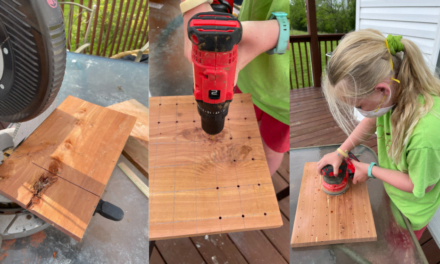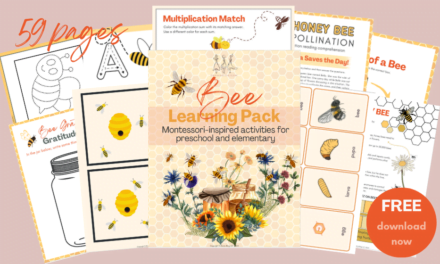
In early childhood and elementary education, diverse methodologies have tried to unlock the potential of young minds. For over 100 years, one approach has captured the hearts of educators, parents, and researchers – the Montessori method. At the heart of Montessori lies a profound belief in the power of the child and the potential of small hands to weave big dreams.
Italian physician and educator Dr. Maria Montessori developed Montessori education at the beginning of the 20th century. Montessori redefined how we view early childhood education. She based her approach on the idea that children have an innate desire to learn and are naturally curious. It emphasizes a child-centered approach to education, focusing on individualized learning, self-directed activities, and hands-on exploration. Commonly associated with early childhood education, including preschool and kindergarten, its principles can be adapted for older children too. Join 3 Moms as we journey through the basics of Montessori philosophy and how it nurtures our children into confident, independent thinkers–and life-long learners.
nurturing independent thinking
The Montessori method is a holistic approach that recognizes a child’s innate curiosity and capacity for learning. Dr. Montessori’s philosophy is founded on the idea that children are not empty vessels to be filled with knowledge. They are active explorers eager to expand their understanding of the world. This philosophy is encapsulated in the phrase, “Help me to do it myself.” This mantra that underscores the importance of fostering a child’s independence.

creating a learning environment that inspires
Central to the Montessori approach is the carefully designed learning space—the ‘prepared environment,’ where every detail is purposefully chosen to encourage exploration and engagement in a vibrant, inviting space. Hands-on materials invite children to imagine, wonder, touch, manipulate, and learn through direct experience. From the iconic Montessori metal insets to the golden beads, these materials are not just tools for learning. They are pathways to understanding abstract concepts and laying a solid foundation for future academic pursuits.
unveiling the joy of discovery with self-directed learning
One of the most distinctive features of Montessori education is its emphasis on child-led learning, encouraging children to choose their own activities and work at their own pace. In Montessori, educators take on the role of guides, observing each child’s interests and progress, tailoring lessons accordingly. This personalized approach allows children to dig into topics and activities that captivate their curiosity, fostering a sense of autonomy, discipline, and self-motivation, as well as genuine love for learning.
Whether it’s through unraveling the mysteries of practical life, language, mathematics, or culture, Montessori students learn that education is not a dismal chore but a self-satisfying journey of discovery. Hands-on materials are a big part of the journey. There are specialized Montessori educational materials, most of which are designed to be self-correcting. These materials help children learn through touch, manipulation, and discovery. You can also DIY suitable materials for many activities.

cultivating personal proficiency
Beyond academics, Montessori education equips children with essential life skills. Early practical life activities like pouring, washing, polishing, and arranging flowers instill a sense of responsibility, coordination, and order. Through uninterrupted periods of work and concentration, children develop focus and resilience. These skills will serve them well throughout their lives.
A key component of this is respecting the child’s autonomy and treating them as capable individuals. As your child’s guide, provide guidance and support while allowing choices and learning experiences of those choices. The child’s freedom in Montessori is sometimes misunderstood as a child having no boundaries. That is not at all the case. Montessori created freedom within limits. Children have the freedom to choose their activities; however, there are clear boundaries and rules that help them understand their responsibilities and the consequences of their actions.
becoming a beacon on the path to learning
In Montessori, educators play an essential role in guiding the learning experience. Montessori educators guide rather than dictate—observing, analyzing, and adapting. Our task is to create an environment of respect, patience, and encouragement, enabling each child to progress at their pace through individualized instruction.
Observe your child’s interests, abilities, and progress. Based on your quiet observations, tailor your guidance and support accordingly. This personalized approach ensures that children are challenged at an appropriate level, laying the groundwork for a lifelong love of learning and a deep-seated belief in one’s capabilities.
The small hands of a child hold immense power–to discover, learn, and shape their destinies. Dr. Maria Montessori’s revolutionary approach celebrates the uniqueness of every child. It nurtures their innate potential and fosters a lifelong passion for learning. In Montessori homes and classrooms around the world, big dreams are cultivated through small hands, reminding us that the greatest discoveries often start with a sense of wonder and a heart full of curiosity.
Comment below with your biggest Montessori parenting and homeschool questions!

Antoinette
don’t miss a thing!
sign up for weekly tips and freebies





